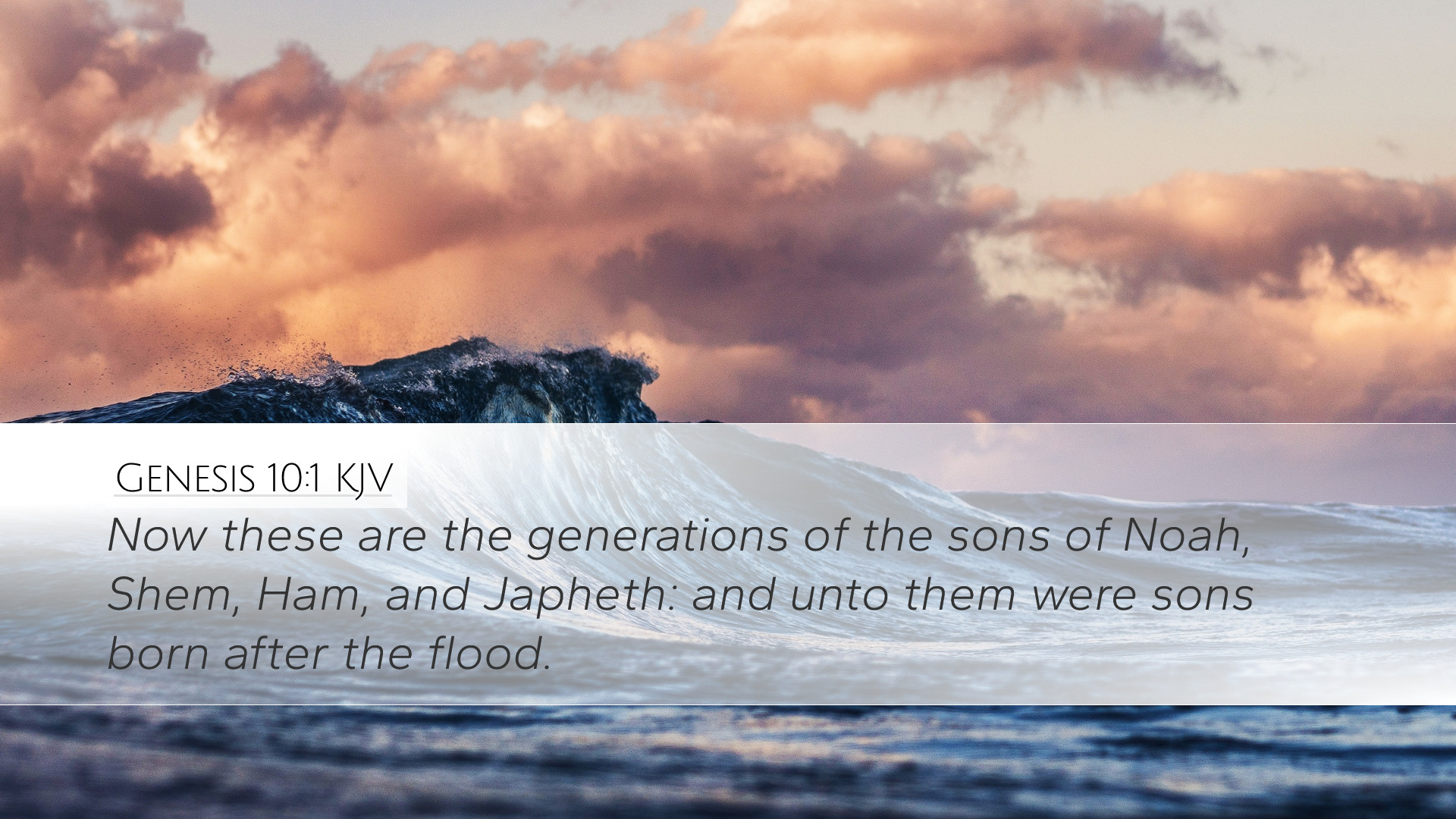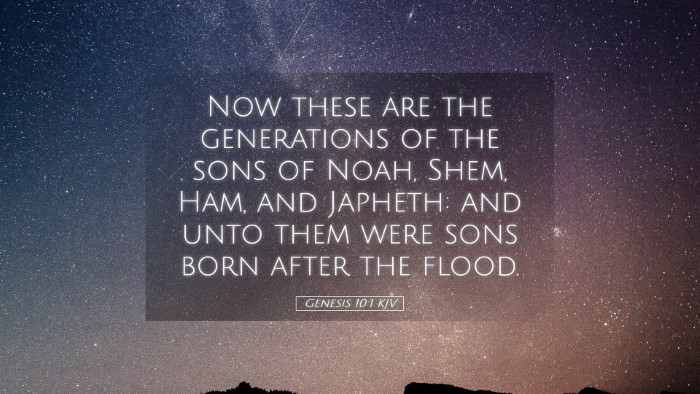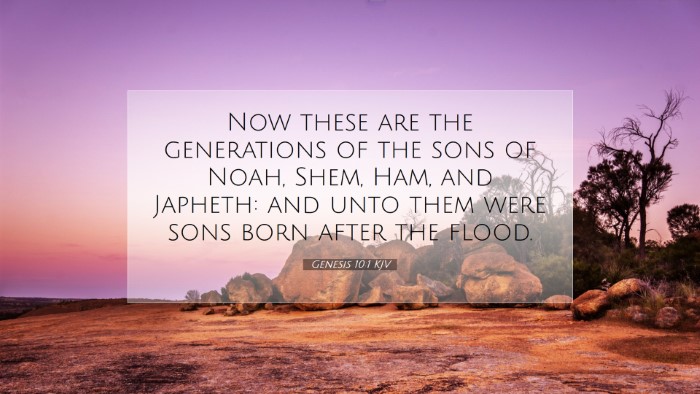Commentary on Genesis 10:1
Verse: "Now these are the generations of the sons of Noah, Shem, Ham, and Japheth: and unto them were sons born after the flood."
Introduction
The tenth chapter of Genesis marks a crucial transition in the biblical narrative following the account of the flood. It serves as a genealogical record that establishes the lineage of the nations derived from Noah's sons: Shem, Ham, and Japheth. This is not merely a list of names, but a foundational overview of the world's geological and ethnological diversity.
In this commentary, we draw insights from esteemed public domain commentators, including Matthew Henry, Albert Barnes, and Adam Clarke, to explore the significance of this verse.
Contextual Background
Matthew Henry emphasizes that the genealogies in Scripture play a significant role in revealing God’s providence and purpose. This chapter roots the various nations of the earth in the one family of Noah, illustrating a recovered world post-catastrophe and showcasing the divine plan of populating the earth once more.
Albert Barnes notes that this chapter’s arrangement derives from the prior record of creation and the flood, suggesting a narrative continuity. It acts as a re-establishment of humanity, emphasizing diversity and unity, as all peoples share common ancestry through Noah's sons.
Interpretative Insights
Genesis 10:1 introduces the sons of Noah, Shem, Ham, and Japheth, each of whom represents different racial and ethnic groups in subsequent generations. This verse serves as a preamble to the more detailed genealogies that follow, which outline how the nations were formed.
- Significance of Generations: Adam Clarke highlights that the term "generations" indicates a continuation of life, setting the stage for humanity's expansion as commanded by God in Genesis 9:1.
- Divine Order: The mention of "sons" signals divine approval and purpose in the propagation of humanity. Matthew Henry reflects on the sovereignty of God in these genealogies, showing that every family and nation has a place in His divine plan.
Ethnic and Cultural Implications
This verse lays the groundwork for understanding the dispersal of various ethnic groups around the world. Each son of Noah becomes the patriarch of nations that would shape human history.
- Shem: Often associated with the Semitic peoples, Barnes remarks that Shem’s descendants play a pivotal role in the biblical narrative, especially in relation to the people of Israel.
- Ham: Ham’s lineage includes nations that are often linked to Africa and the ancient Near Eastern cultures. Henry makes a reference to the complex legacies of these descendants, which often faced biblical censure.
- Japheth: The descendants of Japheth are associated with various nations of Europe and parts of Asia. Clarke posits that Japheth's lines are often seen as symbolizing the more civilized and cultured groups.
Theological Reflections
Genesis 10:1 serves as a theological bridge, connecting the past of humanity's root in Noah to the unfolding story of God's interaction with humanity through the ages.
Matthew Henry comments on the implications of unity and diversity inherent in the genealogies; while humanity is diverse in its ethnicities and cultures, it is also unified in its origin from one family—Noah. This has crucial implications for understanding God's love and plan for all nations.
Albert Barnes emphasizes the theme of regeneration after judgment: the flood signifies God's judgment, yet this genealogical record reflects His mercy and restoration of creation. It is a testament to God’s commitment to His creation despite human sinfulness.
Conclusion
In summary, Genesis 10:1 provides an essential framework for understanding the diverse ethnological and cultural developments that occurred post-flood. The insights from public domain commentaries enrich our understanding of the text, allowing pastors, students, and theologians to appreciate both the historical significance and contemporary implications of Noah's lineage.
This verse serves not only as a genealogical record but also as an affirmation of God’s sovereignty, mercy, and the divine impetus behind the continual unfolding of human history.


